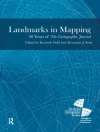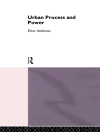Smoking Geographies provides a research-led assessment of the impact of geographical factors on smoking. The contributors uncover how geography can show us not only why people smoke but also broader issues of tobacco control, providing deeper clarity on how smoking and tobacco is ‘governed’.
- The text centres on one of the most important public health issues worldwide, and a major determinant of preventable mortality and morbidity in developed and developing countries
- Records the outcomes of a long-term research collaboration that brings a geographical lens to smoking behaviour
- Uncovers how geography can play a part in understanding not only why people smoke but also broader issues of tobacco control
- Provides a deeper understanding of how smoking and tobacco is ‘governed’, regarding where people may smoke, but also more subtle governance as a climate is produced in which smoking becomes ‘denormalised’
- Brings both quantitative and qualitative perspectives to bear on this major source of mortality and morbidity
Table des matières
About the Authors vi
Series Editors’ Preface vii
Preface viii
Acknowledgements ix
1 Introduction 1
2 The Geo?]epidemiology of an Addiction 16
3 The Economic Geography of Tobacco 50
4 Context Matters: Area Effects, Socio?]economic Status and Smoking 89
5 Place?]Based Practices: Pathways to Smoking Behaviour 108
6 Smoking, Denormalisation and the Messy Terrain of Unintended Consequences 128
7 Smoking Gateways: Burdens and Co?]behaviours 147
8 Place and Tobacco Regulation 168
9 Conclusion 205
References 223
Index 277
A propos de l’auteur
Ross Barnett is Adjunct Professor at the University of Canterbury, Christchurch, New Zealand. He is particularly interested in the implementation of smoking cessation policies and their effectiveness in increasing quit rates among disadvantaged groups. He also acts as a consultant to the Centre for Tobacco Control Research, Zhejiang University in Shanghai.Graham Moon is Professor of Spatial Analysis in Human Geography at the University of Southampton, England. He has acted as a consultant and advisor to national and local governments on smoking cessation policy. Recent work has focused on longitudinal changes in the impact of ethnic segregation on smoking and on smoking-related mortality.Jamie Pearce is Professor of Health Geography and co-Director of the Centre for Research on Environment, Society & Health (CRESH) at the University of Edinburgh, Scotland. His research considers social, political and environmental processes affecting social and spatial inequalities in health. Recent work has examined the influence of the local availability and marketing of tobacco products on smoking norms and behaviour.Lee Thompson is Senior Lecturer at the University of Otago, Christchurch, New Zealand. Her research has centred on the governance of population health, with a special interest in tobacco control and the unintended consequences of tobacco control interventions.Liz Twigg is Professor in Human Geography at the University of Portsmouth, England. She has research and consultancy experience concerning place effects on smoking behaviour, and is particularly interested in identifying hard-to-reach groups in terms of smoking cessation policy.












